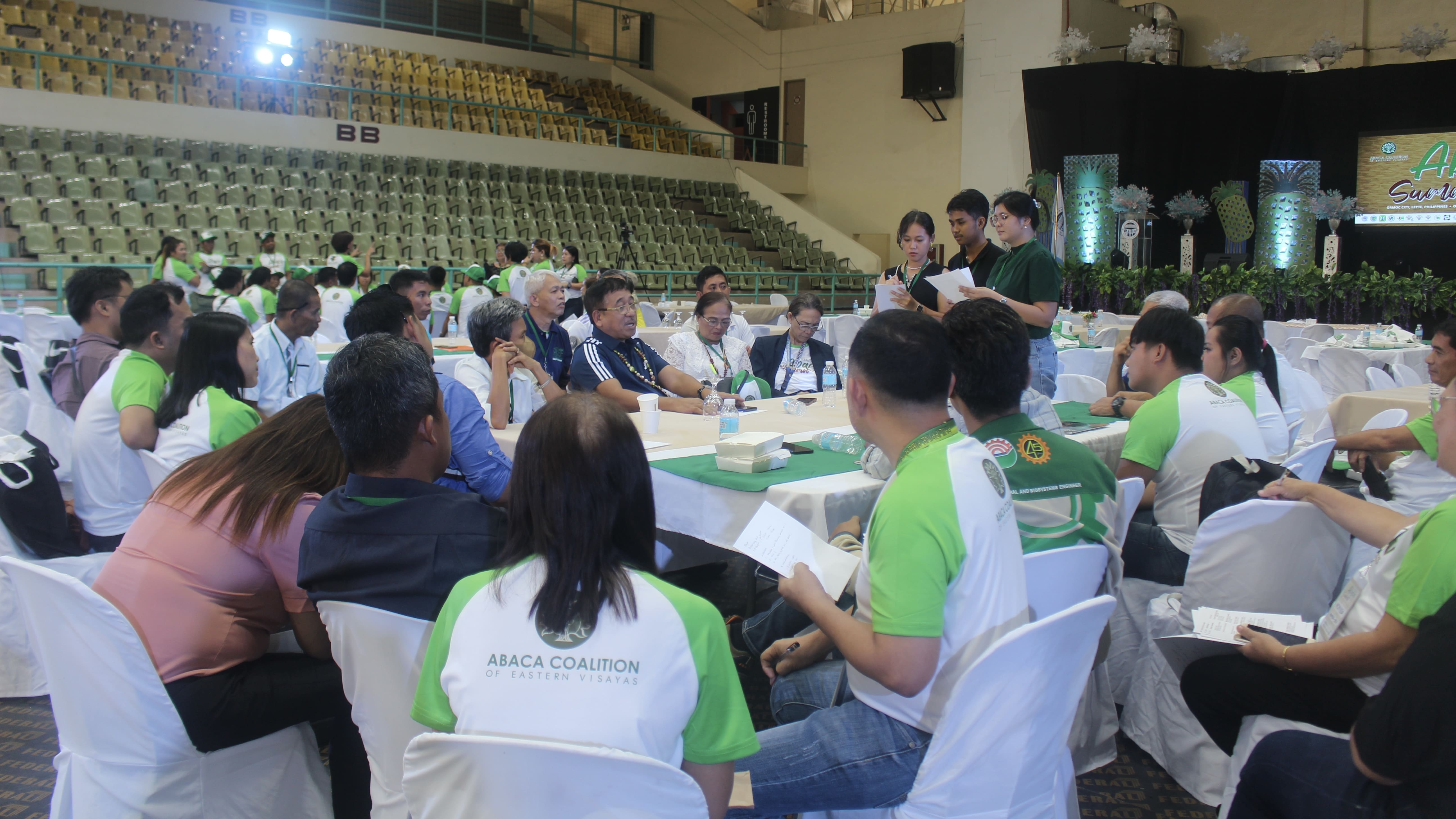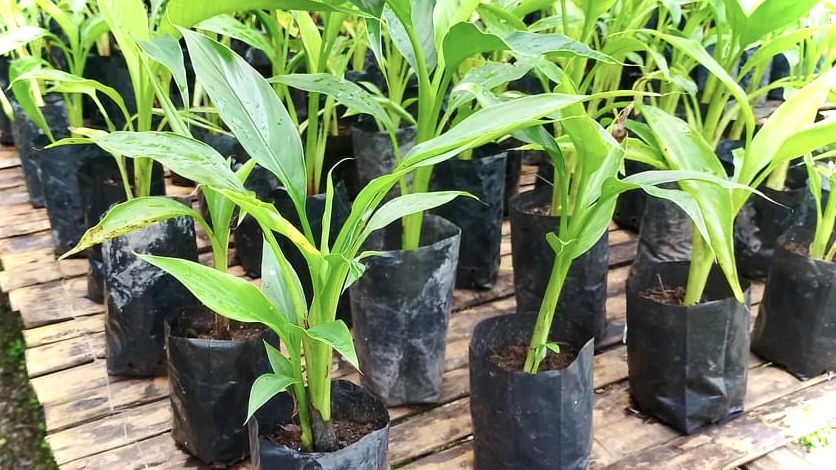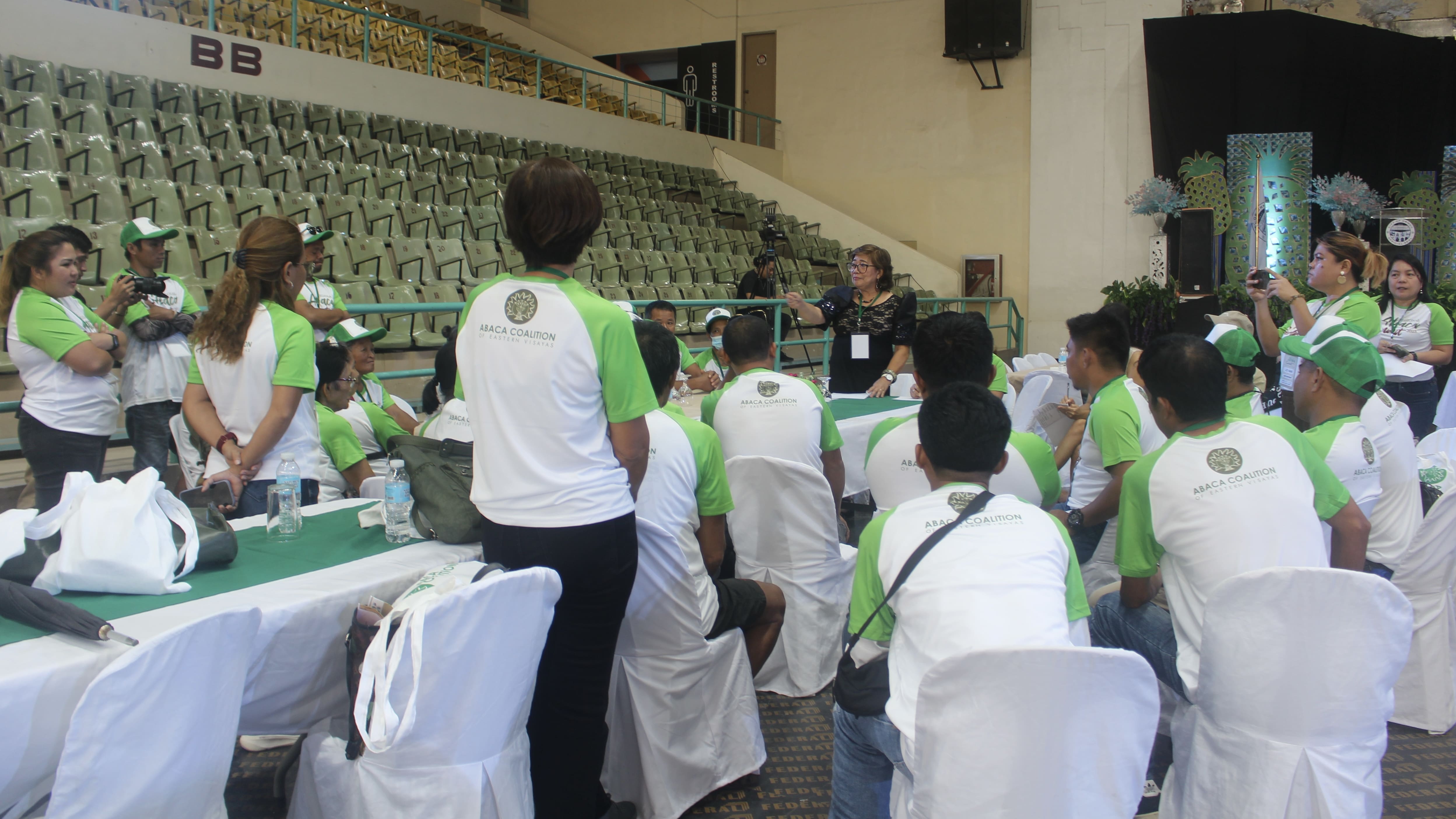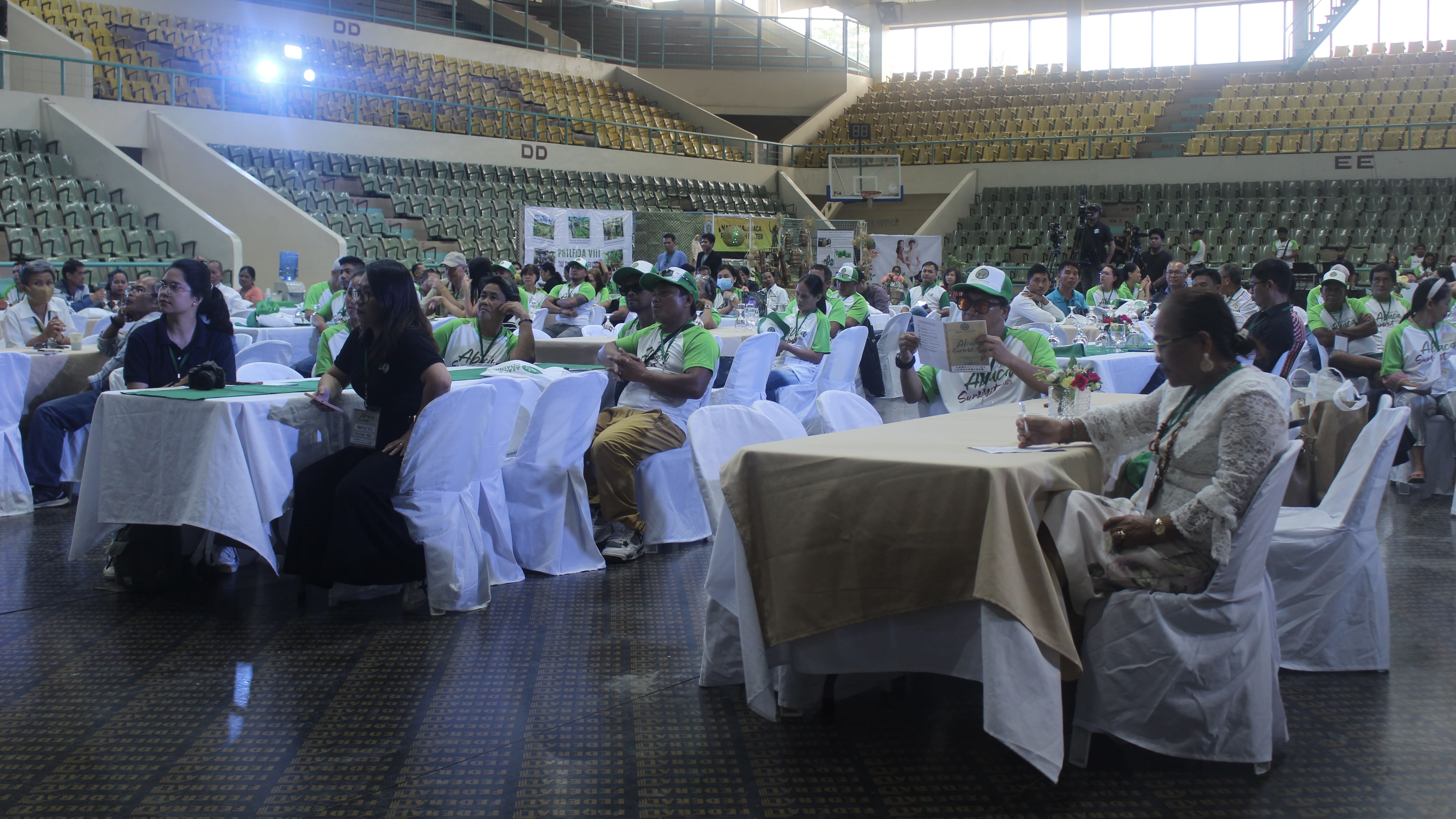Farmers, LGUs, & SUCs in Eastern Visayas push for revival of abaca industry
- Details
- Written by Marianne C. Bayron and Ulderico B. Alviola
-
Published: 08 December 2023

There is a strong unified push among all sectors in Eastern Visayas to bring back the once vibrant abaca industry in the region. To make this happen, local government units (LGUs), state universities and colleges (SUCs), farmer groups, and industry players convened for 2 days to discuss how to make this aspiration a reality.
Member stakeholders of the Abaca Coalition of Eastern Visayas capped off its 3rd Regional Abaca Summit with a meaningful dialogue on reviving the local abaca industry focusing on inclusivity, resilience, and sustainability.
Following the production and economic loss of the abaca sector in Region 8 because of the viral pathogenic disease called abaca bunchy top virus (ABTV), the coalition committed to help rehabilitate the abaca industry through organizing development programs and projects in partnership with different organizations.
This year, the coalition gathered in Ormoc City for the two-day triennial abaca summit that ran from October 26 to 27, 2023.
The summit activities ranged from talking about the salient features and update of the House Bill No. HBO2707 that is now approved in the 3rd reading. This is an act strengthening the national research council of the Philippines of the Department of Science and Technology (DOST) for the promotion of research work and appropriating funds, which will potentially help revive the Philippine abaca industry through supporting development research projects.
Another highlight of the event was the message from the Philippine Fiber Industry Development Authority (PhilFIDA), the main government agency responsible for the promotion of the growth and development of the natural fiber industry.
In her message, Atty. Genevieve E. Velicaria-Guevarra, the Assistant Secretary and the Concurrent OIC Executive Director of PhilFIDA shared that the target goal is to work on the progress and development of the Philippine abaca industry, noting that the Philippines is one of the top abaca fiber producing countries in the world.
“Our commitment is clear – to maintain our country’s dominance in the global abaca fiber market, as we currently supply approximately 86% of the world’s abaca fiber requirements,” she said.
 Ready-to-plant abaca plantlets sold for Php 45 each. Photo lifted from the NARC’s Facebook page.
Ready-to-plant abaca plantlets sold for Php 45 each. Photo lifted from the NARC’s Facebook page.
She further argued that in meeting both the local and global demands, the challenges that the abaca sector is facing should be addressed with strategies. She highlighted that increasing the production of good-quality abaca fiber involves ensuring the availability of disease-free planting materials and the adherence to abaca good agricultural practices.
After the series of lectures, the coalition grouped the participants for the workshop wherein they discussed the surrounding issues and gaps of abaca farming in the region and reported the possible causes and proposed solutions.
Some of the identified problems by the abaca farmers were the lack of extension personnels, poor market roads, and disease-resistant abaca planting materials.

With these concerns, the VSU National Abaca Research Center (NARC) answered that they are already producing good-quality and disease-free tissue-cultured abaca planting materials. Ready to plant abaca plantlets are available at the Center for purchase.
Now with their newly constructed laboratory facility, promoting good-quality abaca planting materials and distributing it to the farmers in the region will be a key to reviving the abaca industry.
Aside from tissue-cultured abaca, NARC also has an Integrated Abaca Extension Program that visits different municipalities for conduct of training and seminars about abaca farming.

Further, the coalition also welcomed newly elected officers with Engr. Wilardo O. Sinahon, Abaca Coalition Summit Coordinator and PhilFIDA 8 Regional Director (PhilFIDA) as President; Dr. Romel B. Armecin, Abaca Coalition Acting Chairperson and NARC Director (NARC) as Vice-President; Jedess Miladel Salomon (NARC) as Secretary; Jonathan Reambonanza (PhilFIDA) as Treasurer; Engr. Augusto Barba (PSPI) as Auditor; Dr. John Paul Gapasin (Southern Leyte State University) as PIO; Leyte Province Representative Maria Elena A. Mendoza (City Agriculturist Office-Ormoc); Southern Leyte Representative Engr. Feliciano Malaki (Office of the Provincial Agriculturist S. Leyte); Northern Samar Representative Dr. Lyndon Ogoc (University of Eastern Philippines); Eastern Samar Representative Ptr. Hector Arana (AMG); and Biliran Representative Rossan Piamonte (Biliran Province State University).

